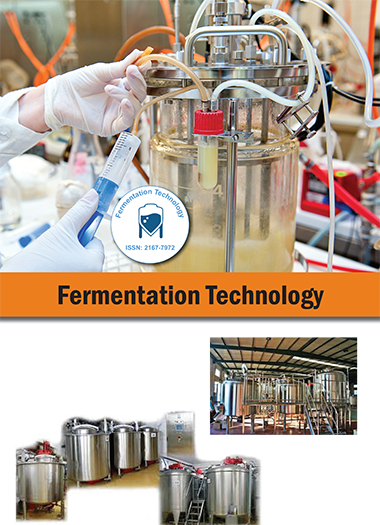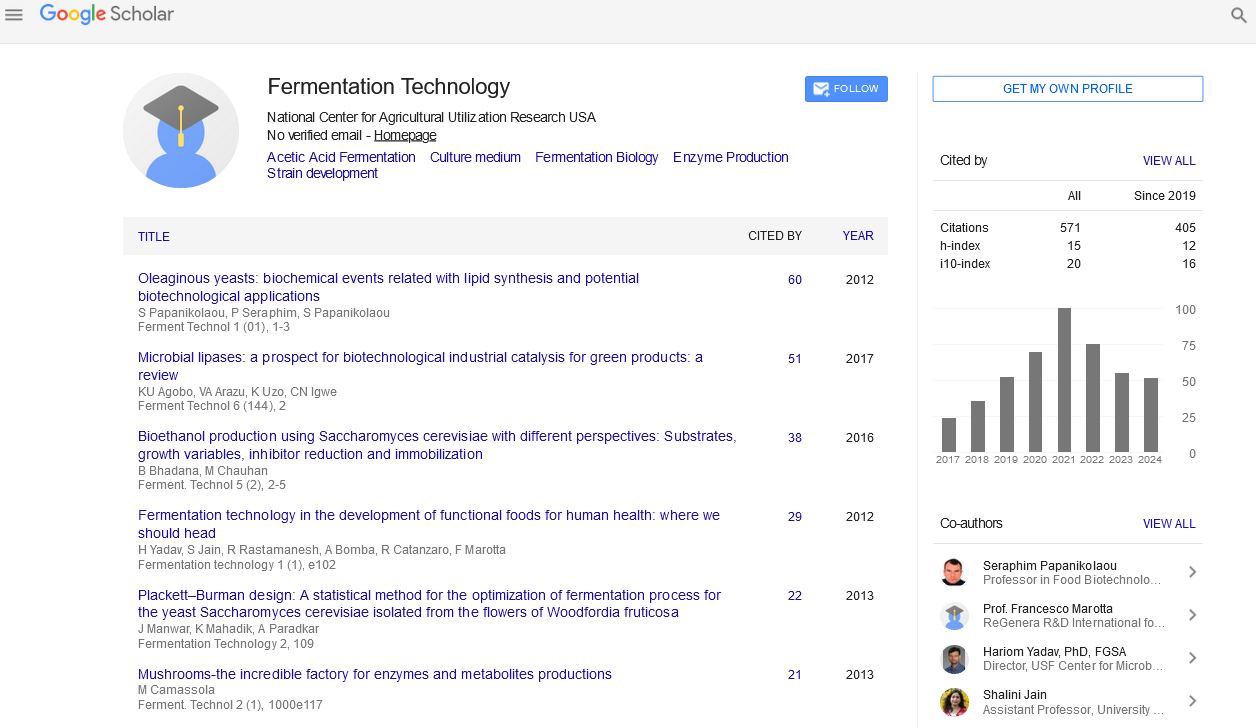Indexed In
- Open J Gate
- Genamics JournalSeek
- Access to Global Online Research in Agriculture (AGORA)
- RefSeek
- Hamdard University
- EBSCO A-Z
- OCLC- WorldCat
- Publons
Useful Links
Share This Page
Journal Flyer

Open Access Journals
- Agri and Aquaculture
- Biochemistry
- Bioinformatics & Systems Biology
- Business & Management
- Chemistry
- Clinical Sciences
- Engineering
- Food & Nutrition
- General Science
- Genetics & Molecular Biology
- Immunology & Microbiology
- Medical Sciences
- Neuroscience & Psychology
- Nursing & Health Care
- Pharmaceutical Sciences
Bioplastic formulation of beneficial microbes to control agricultural pests
World Congress on Beneficial Microbes: Food, Pharma, Aqua & Beverages Industry
August 25-27, 2015 Valencia, Spain
Hamed K Abbas
USDA, USA
Posters-Accepted Abstracts: Ferment Technol
Abstract:
Biocontrol agents are used to control various agricultural pests including fungi, insects, weeds, and bacteria. The efficacy of these beneficial microbes depends on their delivery systems. Because of difficulties in maintaining viability during storage and field application, improved methods are required to enhance their effectiveness. Novel biodegradable formulations comprising biocontrol microorganisms impregnating a starch-based bioplastic are effective for delivering biocontrol microorganisms and bioactive compounds to soil, plants and seeds. Granules of bioplastic containing Aspergillus flavus are sprinkled on soil to reduce aflatoxin in maize. Coating seed with bioplastic containing Trichoderma helps to establish seedlings and prevent root rot. On tomatoes, impatiens and annual bluegrass Trichoderma formulated in bioplastic granules reduces damping off, a fungal disease, by 85%. Application of a sprayable liquid formulation of bioplastic containing Beauveria bassiana significantly reduced damage caused by the European corn borer in maize and the tarnished plant bug in cotton. Applying bioplastic formulated with spores of a non-toxigenic A. flavus isolate resulted in a 97% reduction of aflatoxin contamination of maize. The bioplastic dispersion formulation is effective in delivering crystals of Bacillus thuringiensis endotoxins to European corn borer larvae, causing 72% mortality. These results suggest that bioplastic formulations have the potential for effective delivery of several biocontrol agents.
Biography :
Email: Hamed.Abbas@ARS.USDA.GOV

